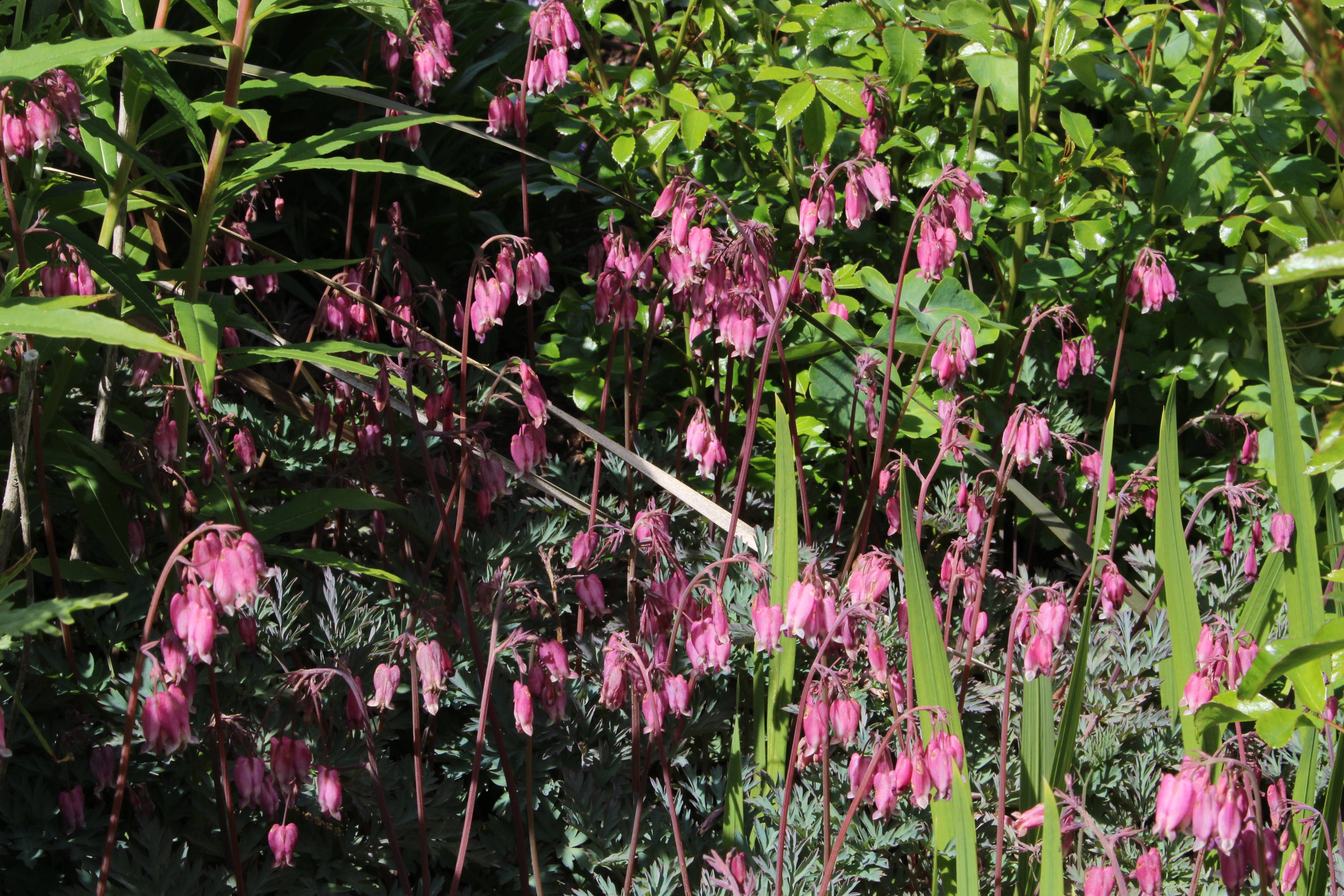Dicentra 'Stuart Boothman'
Approx. 0.5 litre pot
About this cultivar:
Dicentra 'Stuart Boothman' is a compact herbaceous perennial, with finely divided grey-green leaves and arching sprays of deep rosy-pink flowers. It has the Royal Horticultural Society Award of Garden Merit. It is likely some sort of cross between Dicentra eximia and Dicentra formosa, since it has features of both - fine feathery foliage that likes the cool.
Stuart Boothman, (1904-1976) was a respected alpine plantsman. In 1933 he founded his Nightingale Nursery in Berkshire, from where he also introduced a well know Phlox 'Boothmans Variety' and wrote a few books on Alpine gardening.
- Position: Full sun, partial shade, full shade
- Soil: Almost any soil, grows well in Ballyrobert
- Flowers: April, May, June, July, August
- Other features: Royal Horticultural Society Award of Garden Merit (RHS AGM), Great Ground Cover
- Hardiness: H5 - Hardy in most places throughout the UK even in severe winters (-15 to -10°C), Fully hardy - grows well in Ballyrobert
- Habit: Clump forming, bushy, Pendulous or Weeping
- Foliage: Deciduous
- Height: 15 - 35 cm (0.5 - 1.2 ft)
- Spread: 40 - 75 cm (1.3 - 2.5 ft)
- Time to full growth: 2 to 5 years
- Plant type: Herbaceous Perennial
- Colour: Green, pink
- Goes well with: Carex, Polygonatum, Hosta, Pulmonaria
About this genus:
Dicentra is a genus of perennial herbaceous plants in the poppy family (Papaveraceae). Commonly know as Dutchman's breeches, lyre flower, lady in a bath or bleeding hearts because of the shape of the flower. The first plants specimens were introduced into Europe in 1816 but were lost only to be re-introduced in the 1840s from Japan by the Scottish botanist and plant hunter Robert Fortune.
We *heart" Dicnetra in our garden at Ballyrobert! Easy to grow, beautiful drooping habit, wonderful flowers, attractive foliage, long blooming and coming in a variety of shapes, size and colours; what is not to like?!?
Depending on the cultivar the flowers can come in yellow, white, pink, and red and the foliage can vary from almost purple to very light green. Some love full sun and some love full shade but most will grow in almost any soil or situation.
They pair well with Carex, Polygonatum, Hosta, Pulmonaria - try them or you'll have a broken heart.


